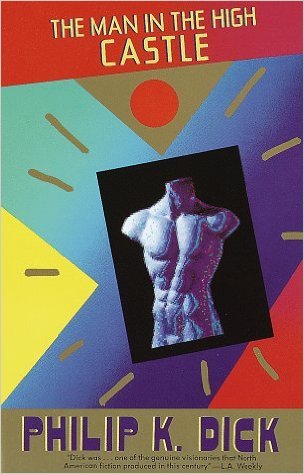I saw a horror movie in theatres recently; I was barely able to peek out from behind my fingers. There’s the horror in horror movies—jump scares, scary monsters, creepy music—and then there’s the horror in “The Man in the High Castle.”
Philip K. Dick is not a traditional horror writer like Stephen King, but Dick’s novel “The Man in the High Castle” would terrify any ethical American person.
Imagine this: The Allies lost World War Ⅱ instead of taking down the German-led Axis Powers. Germany and Japan bulldoze American life, dividing the country in two, Germany on the east coast and Japan on the west. The Rocky Mountains are neutral territory between the two coasts but still, live in fear of total invasion.
Hitler continued his genocide of Jews, Gypsies, and many others with no one to stop him. No one is safe.
Now, doesn’t that sound terrifying?
“The Man in the High Castle” is considered science fiction because of the alternate timeline it explores, however, that is the only science fiction thing about it. The novel is political in nature and is more of a novel of idea than a novel of character.
The characters: Frank Frink, Juliana Frink, Robert Childan, Mr. Tagomi, and Mr. Baynes, share the novel equally in terms of involvement, but they aren’t essential to the plot. The characters are mainly used to explain how the occupation of America affects different people differently. Dick’s attempt at this technique is successful. The characters are interesting enough to draw attention, but not enough to take over the overall idea of the novel.
Written in 1962, the writing is surprisingly modern. If I didn’t know better, I’d say the book was written yesterday. The text is rather literal, hardly any metaphorical meaning. It serves the novel well to not have any metaphorical meaning since Dick is touching on a sensitive matter. There isn’t any confusing jargon normally found in science fiction. Anyone could read this novel and understand it.
Dick gives the reader an alternate reality, but at the same time, gives his characters an alternate reality. A book in the novel popularizes the very same idea Dick is writing to us; what if the other side one? I think Dick is emphasizing that no matter the outcome, there could have been a
different one. The winning side could have lost, and the losing side could have won. How easy the tide changes.
This novel makes you think. It makes you wonder. It gets the brain working its gears, which is something I miss when I’m reading my normal fantasy novels. I love it, and I wish the authors I love would take note, small or large, from Dick’s playbook.
Pick up “The Man in the High Castle”, I promise you won’t regret it. Swing by the second floor of the Ross Pendergraft Library; they have it.







